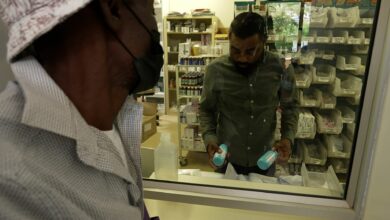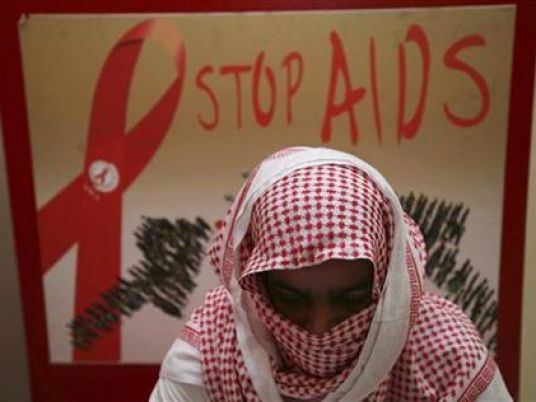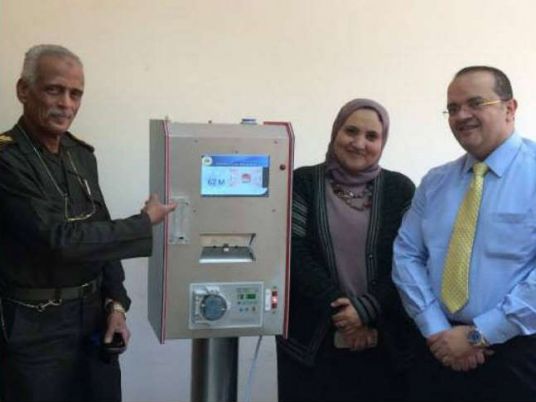The Forum to Fight Stigma and Discrimination against People Living with HIV/AIDS (PLHA) held a press conference at the Flamenco Hotel yesterday to launch a study on combating stigmas about the diseases in Egypt.
The study sheds light on society’s negative perception of PLHA and aims to provide recommendations promote the rights of patients living with the virus.
According to a UNAIDS 2009 report, an estimated 11,000 people are living with HIV/AIDS in Egypt. As of the end of 2009, 1078 of the 3919 people infected with HIV were found to be developing AIDS.
The study launched Wednesday is based on the results of a report titled “Situation of Research on Stigma and Discrimination against PLHA in Egypt” by the Egyptian society for Population Studies and Reproductive Health. Additional published reports as well as unpublished research based on focus-group discussions with people infected with HIV/AIDS in Egypt are among the information sources included in the study.
“Patients’ participation contributed considerably to filling the information gap we faced while collecting data,” said Amani Massoud, forum coordinator and deputy director of the Right to Health Program, an Egyptian initiative for personal rights.
During the conference, speakers explained the main obstacles to ending stigma and discrimination in Egypt.
Massoud cited media and the health care system as two of the most important influences on perception of infected populations.
“We plan to provide health care facilities with improved infection-control programs and training sessions on medical ethics with the aim of establishing effective anti-stigma policies,” she said.
“Press spreads a negative image for the virus through employing words such as ‘victims,’ ‘sinners,’ and ‘criminals’ to portray PLHA in print media,” she added.
Massoud pointed out that during the eighties, movies used to tackle HIV/AIDS from a faulty perspective, portraying them as diseases that primarily afflicted drug addicts, promiscuous people and sex workers.
“Media is not only increasing the stigma, but also spreading misleading ideology about methods of disease transmission,” she said.
Maged al-Rabeiy, managing director of the forum, who herself is infected with the disease, said that there is a misconception that AIDS patients are sinners.
“Not all patients are infected because of committing taboos. A pregnant mother can pass the disease to her child or a husband can pass it to his wife or it can be transmitted through blood transfusion,” she said.
“People are afraid of getting close to patients despite knowing that they won’t be infected through day-to-day activities,” said Sani Kuzman, forum spokesman.
He added that the sense of personal blame often prevents people living with HIV or AIDS from seeking treatment or even getting tested, thereby increasing the disease’s spread in society.
The workplace represents another source of stigma, according to a study conducted in 15 companies, which revealed that 53 percent of participants would not feel comfortable working with someone they knew to be HIV-positive. Only 35 percent believed that PLHA should be allowed to work, while 36 percent said they would share a room with a colleague who was HIV-positive.
Massoud pointed out that in eastern societies women are more vulnerable to stigma and discrimination than men. “Women are always blamed for their behavior that led them to get infected while men can be forgiven,” she said.
The study also includes a booklet of testimony from HIV/AIDS patients about their experiences with discrimination.
“The aim of the booklet was to raise the awareness about the suffering patients face from medical professionals, religious leaders, family and the police,” said Ashraf Amin, a forum member and deputy head of the science department at Al-Ahram newspaper.
Ashraf added that the forum members intended not only to tackle negative stories. The booklet also includes examples of people who were able to overcome their problems and recover.
Khaled Montasser, physician and writer, strongly condemned physicians for promoting the AIDS stigma instead of combating it.
“Physicians are the missing part in the equation of fighting AIDS,” he said.
“The terror is not that of HIV and AIDS, but that of stone walls we’ve built around our consciences, the cement fortress that we built in our minds, and the silence and ignorance slowly turning into a bomb that… slaughters everyone, not only PLHA,” Montasser said.
Kuzman expressed his optimism that the forum was breaking the silence around the disease and grabbing the public’s attention.
“Now is the time to speak up; we don’t have to waste anymore time keeping silent in order to save others from getting infected,” concluded Rabeiy.




